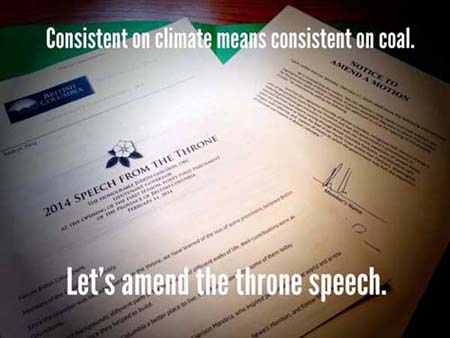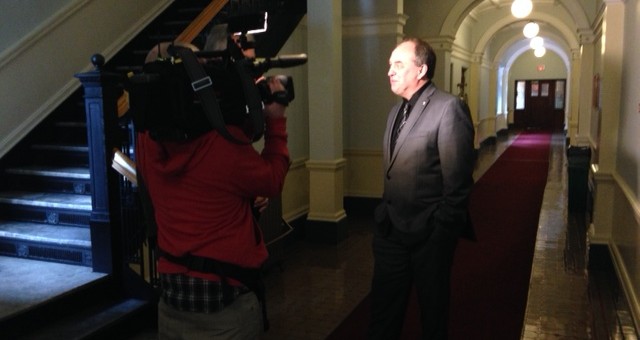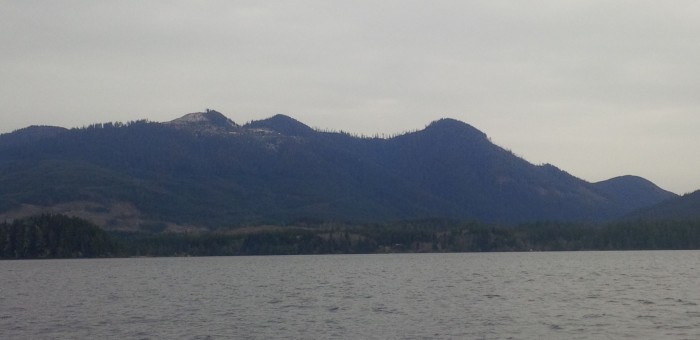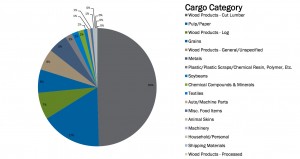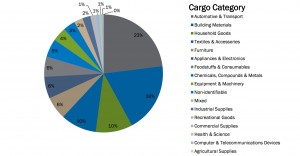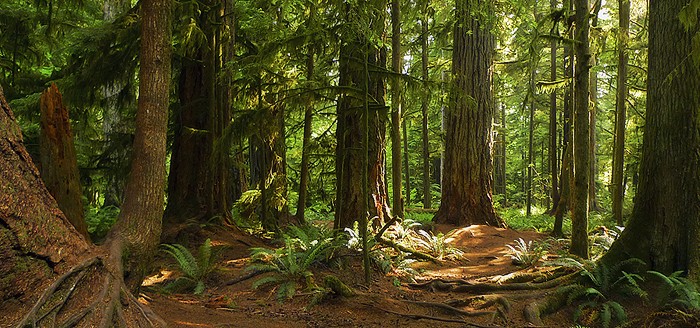Resource Development
Green Party MLA Andrew Weaver Uses Motion to Open Coal Debate
Media Statement: February 12th, 2014
Green Party MLA Andrew Weaver USes Motion to Open Coal Debate
For Immediate Release
Victoria BC – Andrew Weaver tabled a motion to amend the throne speech today in the Legislature, opening a debate on thermal coal exports from British Columbia. The motion, should it pass, would amend the throne speech to include the following:
Notice to Amend a Motion – And that this, the Legislative Assembly of British Columbia, recognizes that climate change is one of the greatest issues facing our Province and that this government’s commitment to reducing greenhouse gas emissions is inconsistent with the current expansion of United States-sourced thermal coal exports coming through British Columbia’s harbours, and therefore calls upon this government to follow the lead of our Pacific Coast Action Plan Partners, Washington, Oregon and California, and explore all means by which the government may halt the further expansion of thermal coal exports in British Columbia.
BC is expected to increase coal exports to 65 million tonnes by the end of 2015, The province only produces around 30 million tonnes of which the majority is metallurgical coal used for steel manufacturing in Japan, Korea and China. The other roughly 40 tonnes is a mix of thermal and metallurgical coal, mostly originating in the US and Alberta.
The vast majority of thermal coal is trans-shipped from mines in Alberta and the Powder River Basin in southern Montana and northern Wyoming. Over the last decade the amount of thermal coal being shipped through BC has risen dramatically. Thermal coal now accounts for somewhere between 30 to 40% of all coal exported through BC ports, and the number is expected to rise.
“In Tuesday’s throne speech the government stated LNG exports would reduce greenhouse gas emissions in China. Increasing thermal coal exports through BC is completely inconsistent with that message. We need a debate here in the Legislature, and a conversation around the province on our energy future, the impact that will have on climate change here in BC, and around the world.” Said Andrew Weaver
The United States has signalled its intent to reduce dependency on coal fired power generation, moving to natural gas and renewable energy sources. California, Oregon and Washington State have asked regulators to include the impact of greenhouse gas emissions both in the US, and internationally, before approving export licenses.
In October BC signed on to a new Pacific Coast Action Plan on Climate and Energy with Washington State, Oregon and California. A provision in the plan requires the signatories to cooperate with national and sub-national governments around the world on climate action.
Media Contact
Mat Wright – Press Secretary Andrew Weaver MLA
mat.wright@leg.bc.ca
1 250 216 3382
Andrew Weaver challenges MLAs to live up to Throne Speech Rhetoric
With today’s Throne Speech, the BC Liberal Government once again positioned LNG development as its moon-shot saving-grace for the economy, the climate and B.C.’s future. Yet, according to Andrew Weaver, MLA for Oak Bay-Gordon Head and Deputy Leader of the BC Green Party, while the government’s throne speech offers lofty goals, it falls far short of positioning B.C. as a leader in the 21st century economy.
“The BC Government is talking about making an economic plan and sticking to it and yet they still have no plan for what to do once LNG runs out or if it never takes off,” says Dr. Andrew Weaver. “We are still not using LNG to transition ourselves to a low carbon economy. And we still have no back-up plan for our economy if LNG fails to deliver. ”
The USA, China, and EU are all heading into renewable energy and knowledge based economies. Instead, B.C. is doubling down on its hope to become a super highway for non-renewable exports.
British Columbia has the potential to be a clean tech powerhouse but for this to happen we need a specific and actionable economic and skills training plan to position B.C. as a leader in the new global clean tech economy.
As the 2014 legislative session begins, Andrew Weaver will be looking for MLAs who are serious about building an economic future based on access to clean renewable energy, the innovative potential of British Columbians, and our desire to ensure fiscal, environmental and social sustainability for future generations.
In making this challenge, Weaver says: “To those politicians who claim to be so concerned about greenhouse gas emissions, where are your voices in opposition to the proposed expansion of thermal coal exports? To those politicians who are concerned about a strong economy, where are your backup and transition plans? ”
Once more… let’s say ‘no’ to coal and ‘yes’ to jobs
In an earlier post I noted that British Columbia presently mines, transports and ships metallurgical coal used in the steel industry in Asia. However in recent months there has been a push to expand our coal exports to include vast amounts of US thermal coal used to produce electricity. Washington, Oregon and California have all said no to the export of this excess thermal coal through their ports. So why do we think its okay to ship the coal through British Columbia ports? There are very few jobs associated with coal export and we know that coal combustion is the dirtiest way to produce electricity. In fact, North American markets are drying up for this thermal coal due to an explosion of shale gas production and shale gas burns much cleaner and more efficiently than coal. Even China recently announced plans to significantly reduce their use of coal.
In order to increase our export capacity for thermal coal, Fraser Surrey docks have proposed the creation of a Direct Transfer Coal Facility. This facility would transfer coal from trains to barges for transport to a handling facility at Texada Island. There coal would be stored and loaded onto ships destined for the Asian market. I understand the desire of Fraser Surrey docks to expand their operations, but is coal really the only option? I think not.
According to Port Metro Vancouver “Container traffic through the west coast of Canada is expected to double over the next 10 to 15 years and nearly triple by 2030“. In my earlier post mentioned above, I pointed out how the Port of Prince Rupert seized upon some of their natural geographical advantages to host a modern container facility. Presently their container facility does not have a capacity for destuffing and restuffing containers upon their arrival from Asia. But by adding such a capacity, hundreds of local jobs would be created.
This week I toured the Alberni Inlet and the port in Port Alberni to get a sense of what potential for growth existed there. The CEO of the Port Authority, Zoran Knezevic, together with the Port Authority directors that I met, shared a vision that has enormous potential for both local job creation and the environment. It sure looks like a win-win proposition for industry, the citizens of Port Alberni, their Huu-ay-aht First Nation partners, Fraser Surrey docks and Vancouver as a whole.
At present, container ships entering the Strait of Juan de Fuca from Asia and elsewhere will first head to Seattle to unload/load. There they will typically spend a day before moving on to either Deltport or facilities on the south shore of the Burrard Inlet. Another day or so will be spent in the Vancouver region before the ships head back to Asia. Many of the containers unloaded/loaded in the Burrard Inlet are put onto or taken off trucks which drive across the city to the existing distribution and industrial centres largely located on the south arm of the Fraser River. The trucks — more than a million of them a year — add to traffic congestion in the Metro Vancouver area.
So what’s the solution? Port Alberni is proposing to build a container trans-shipment terminal in partnership with the Huu-ay-aht First Nation about 35 km down the inlet from the town of Port Alberni. The facility would be used to unload container ships from Asia and reload their cargo onto barges that would head to either Seattle or Vancouver. The shipping industry wins as their large container ships only unload/load once and save the ~4 day trip to Seattle, Vancouver and back out the Strait of Juan de Fuca. Vancouver wins as the barges can now travel up the south arm of the Fraser River directly to the industrial/distribution sites thereby eliminating more than a million truck trips a year off Metro Vancouver roads. Fraser Surrey Docks win as they can grow to include an expanded container handling facility which would allow them to load/unload trains with cargo instead of coal. And with the expected doubling of container traffic in the next 10 to 15 years, there is indeed a need for additional container handling capacity.
Let’s hope that Fraser Surrey docks, the Port of Metro Vancouver, the Port Alberni Port Authority and the BC Government can all get together to work this out. After all, we all win as the power basin thermal coal stays in the ground.
It’s time to say ‘no’ to coal and ‘yes’ to jobs
British Columbia presently mines, transports and ships metallurgical coal used in the steel industry in Asia. These are where B.C. jobs are focused. However, the proposed Port Metro Vancouver, Texada Island and even recent Prince Rupert expansion of coal exports, is largely for thermal coal produced in the United States that is burned to produce electricity. North American markets are drying up for this thermal coal due to an explosion of shale gas production. Shale gas burns much cleaner and more efficiently than coal. Even China recently announced plans to significantly reduce their use of coal.
Washington, Oregon and California have all said no to the export of this excess thermal coal through their ports. So should British Columbia.
This is not about lost B.C. jobs or economic growth. It’s about turning the Best Place on Earth or Beautiful British Columbia into a petro province and the message that this sends internationally.
The premier recently toured Asia touting B.C. natural gas as a means of reducing Asian greenhouse gas emissions arising from the burning of thermal coal. Even in the case of Japan, which is shutting down its nuclear reactors, the premier is arguing that B.C. should earn credits for potential greenhouse gas reductions. She argues that Japan could build coal-fired electricity plants if they don’t switch to natural gas — arguably a bit like me saying “give me a credit or I’ll buy an SUV instead of a hybrid.”
The B.C. government needs to be consistent with its approach to greenhouse gas management. We need to send a strong signal to the market that our principles: that the well-being of future generations of British Columbians are not for sale.
But this isn’t just about saying no to development. We can instead promote real opportunities for the growth of stable, well-paid BC jobs.
The Port of Prince Rupert is the third largest port on the west coast of North America and the closest to Asia. Prince Rupert also benefits from having the lowest-grade passes through the Coast and Rocky mountain ranges. This means that ships can get to Asia three days faster than from any other North American port, and trains can be longer, and burn less diesel, as they transport goods eastward.
The modern Fairview container facility built in 2007 is a highly efficient direct ship-to-train system used for both importing and exporting goods to and from Asia. Most of the exports are wood products, grains, metals, and other resources and most of the imports are manufactured goods (see Figure).
Figure: Prince Rupert cargo category exports (left) and imports (right) by percentage of total. Source: Prince Rupert Harbour Authority.
The potential for job growth at this port is profound. Presently the container facility does not have a capacity for destuffing and restuffing containers upon their arrival from Asia. Let’s suppose a company like Walmart or Costco wants a large order of fridges, stoves, ipods, kettles, shoes and cell phones all manufactured in China. Right now, containers would come into the Port of Prince Rupert; they would be loaded onto a train and shipped to east or to the mid-west US where destuffing/restuffing would occur (in Chicago, for example). There is no reason why the containers couldn’t be destuffed and all of the Walmart or Costco orders restuffed together in their own containers in Prince Rupert instead of in Chicago. Such a process would involve hundreds of jobs and would give North American distributors faster and potentially less costly access to their inventory.
So together let’s say no to coal and yes to jobs.
Logging Around Cathedral Grove Highlights Need For Forestry Engagement
Media Statement—November 18th, 2013
For immediate release
Victoria, BC: Recent forestry conflicts highlight need for proactive and inclusive approach to decision making.
The growing opposition to Island Timberlands’ plans to log a forest stand only 300 meters from Cathedral Grove, is only the latest sign that British Columbia’s Forestry management process is in desperate need of a review.
“As of 2:00pm on Monday, we have received over 2300 emails from concerned citizens, voicing their opposition to these plans. I completely understand and agree with the specific concerns raised by this campaign. It hints at a much larger disconnect between the decisions that are getting made, and the process to get there. I think people are feeling like they don’t have a voice”.
The decision to log the stand owned by Island Timberlands, adjacent to Cathedral Grove, goes against the idea of using a scientific approach to managing our forests. Identified previously as important Black-tailed Deer wintering habitat, the fracturing of this habitat will have adverse effects. Furthermore, Cathedral Grove is an iconic tourist attraction on Vancouver Island – it is unsurprising that there has been such a public backlash against logging activity so close by. This is an example of the current conflict driven model of forestry management – and the negative impacts it has on everyone involved.
“The current model for decision making in this sector seems to rely on large public backlash to spur proper engagement. This approach hurts everyone. We need to have a system that transparently and proactively engages citizens in the decision making process. This will benefit companies by removing a measure of uncertainty and will allow local communities to feel like they have the tools to protect their ecosystems.”
“I believe it is time for the BC government to re-engage British Columbia’s forestry stakeholders, including environmental groups, local communities, First Nation’s communities, forestry companies, and experts at our Universities, to develop a more proactive, evidence-based approach to identifying which areas should be logged, and which ecosystems need to be preserved.”
Quotes by Andrew Weaver – MLA, Oak Bay – Gordon Head
-30-
Media Enquiries please contact:
Mat Wright – Press Secretary – Andrew Weaver MLA
mat.wright@leg.bc.ca
Mobile (1) 250 216 3382

